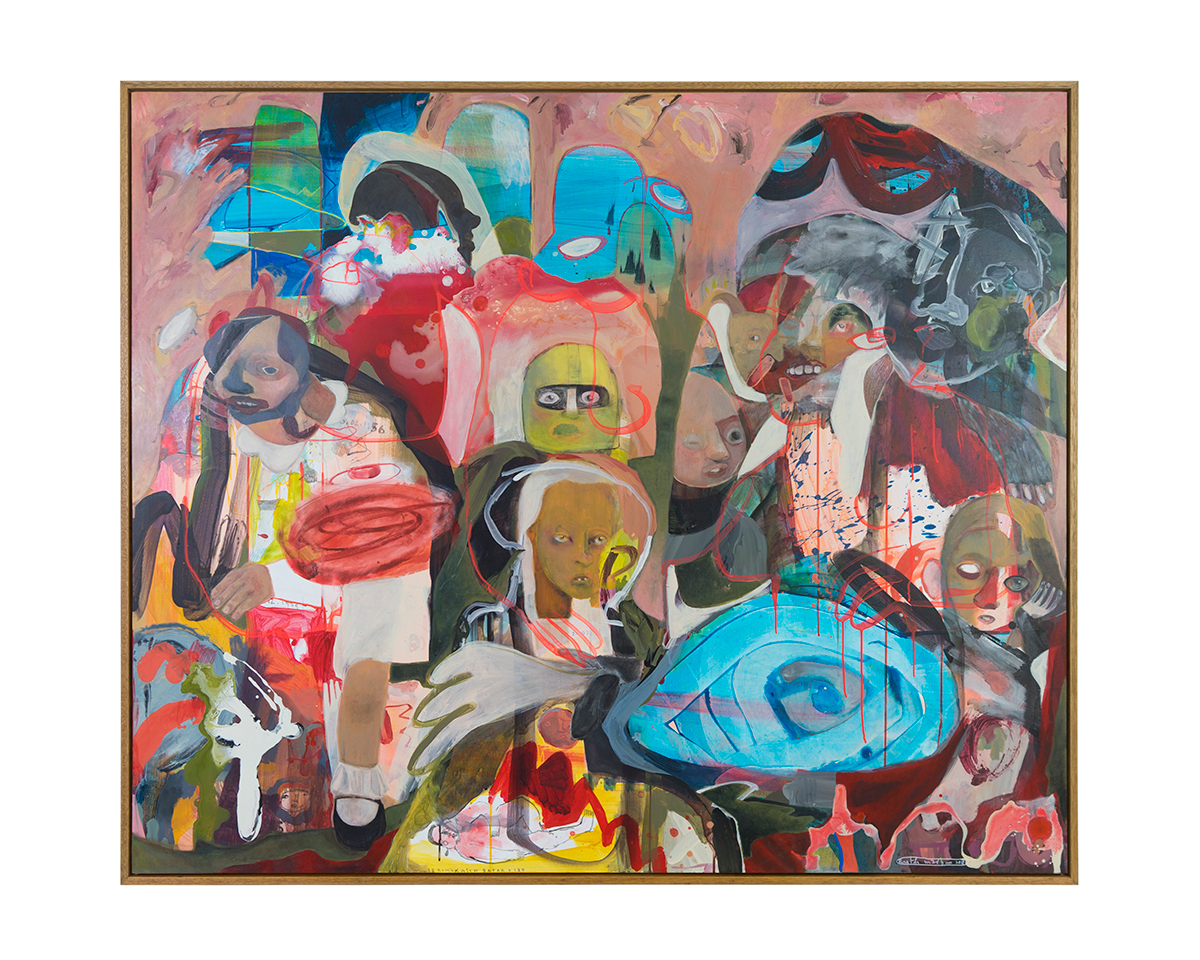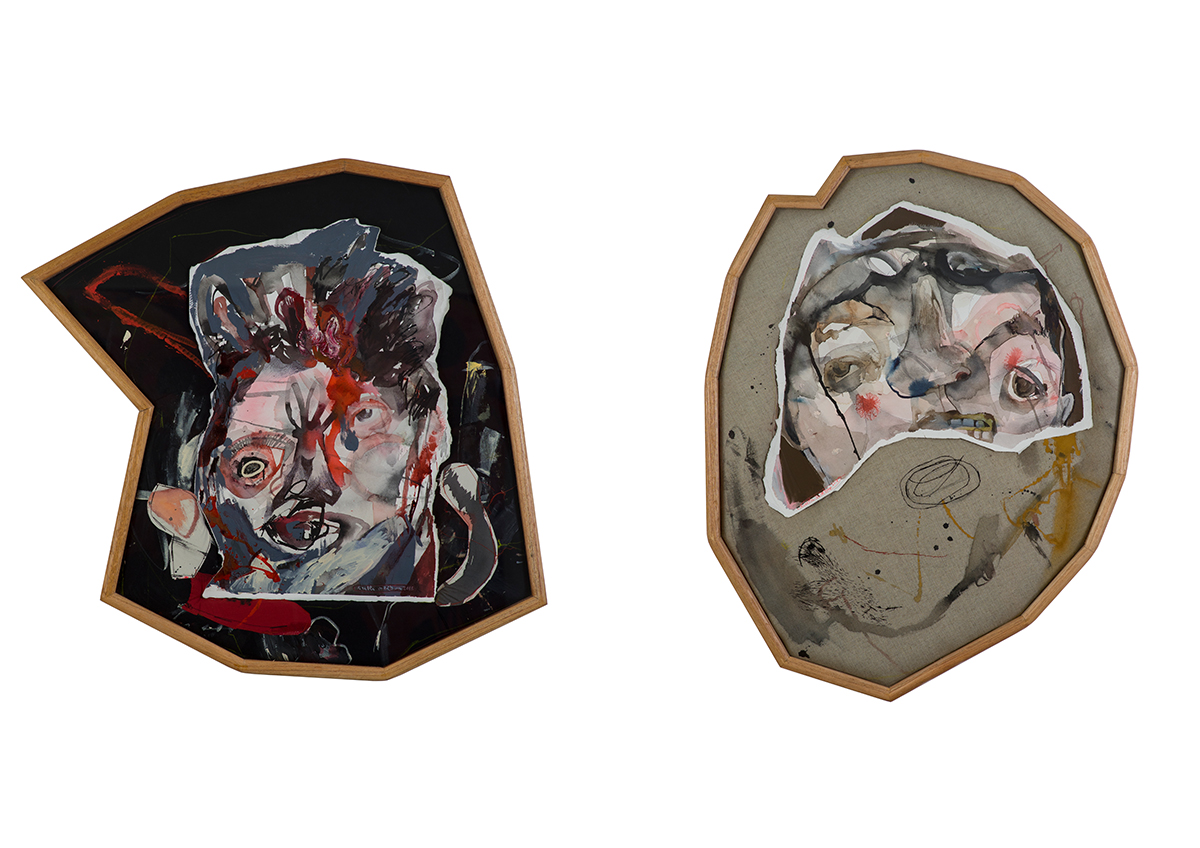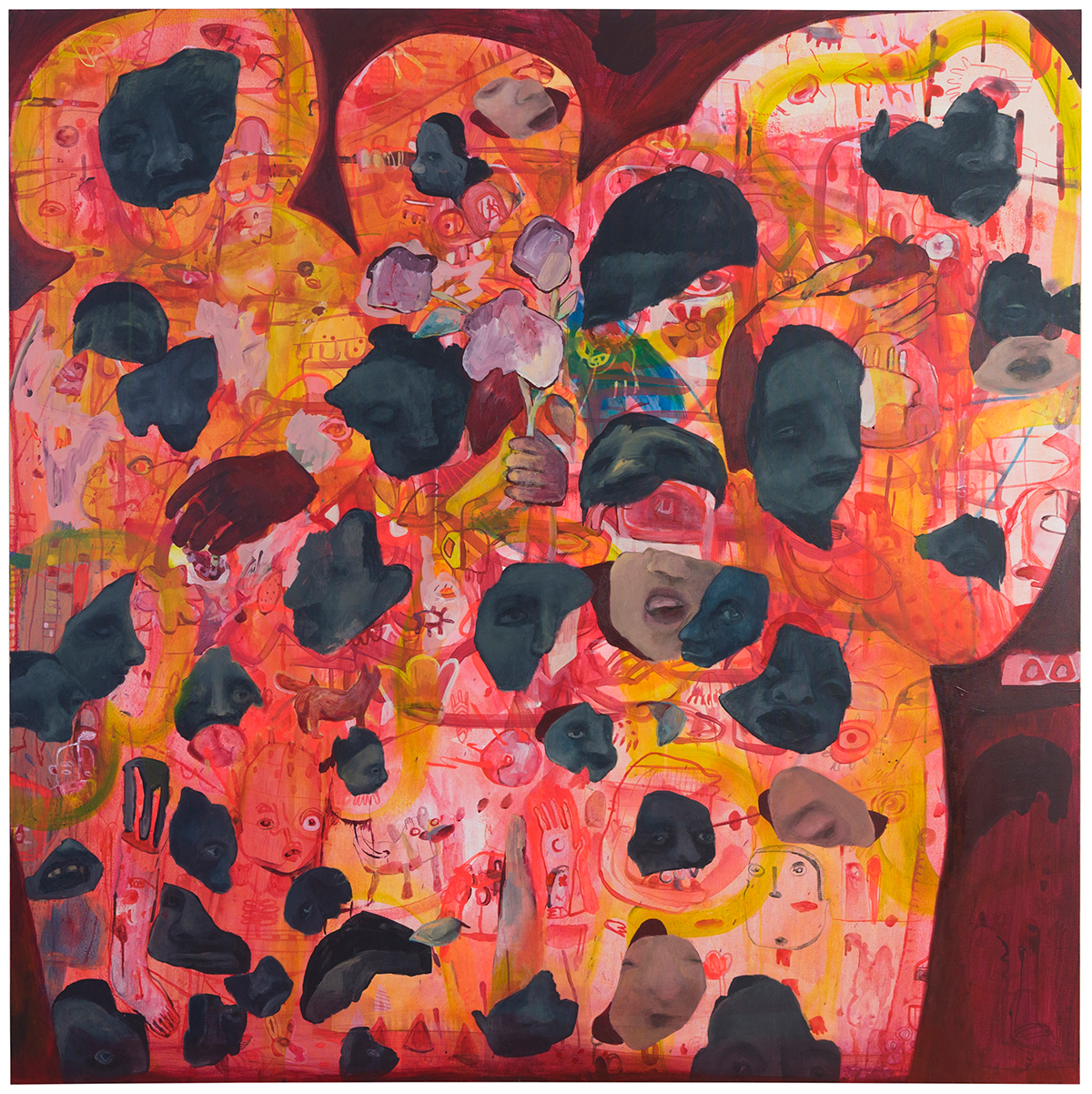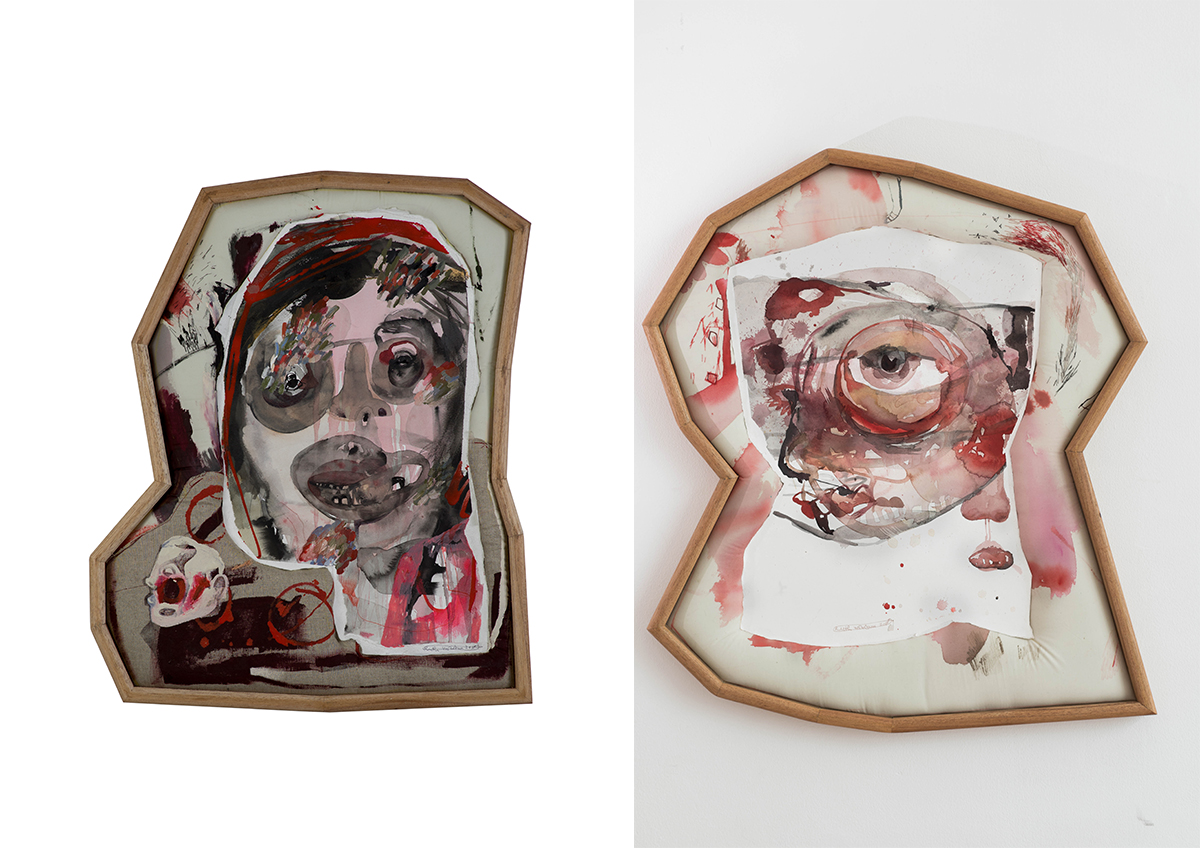Ruth Marbun Embraces Imperfections Through Latest Body of Work. Meet Ruth Marbun, an Indonesian artist who has actively created masterpieces of canvas works through fragments of the human life.
They say the journey is much more important than the destination. For an artist, the creative process becomes the defining moment. All the littlest attributes of making mistakes, refining concepts and being one with the creative process, matters. Although embracing imperfections through all those attributes may seem hackneyed, Ruth Marbun believes that revealing those features are what make an artist authentic.
Ruth Marbun or better known as ‘Utay’ is an Indonesian artist who has actively created masterpieces of canvas works and collages since 2012. Reflection of women, fragments of the human life and clashes of emotions are interweaved as a major theme of her work. The many different abstract and contrasts of pastel watercolors alongside facial features define Utay’s creative works.
Utay was based in the UK, The United States and finally, in Singapore. Recently, her works were featured in a solo exhibition in Clear Gallery Tokyo, which the gallery also participated in one of Jakarta’s major art exhibitions, Art Jakarta 2018. Much to Utay’s surprise, she was grateful that the gallery had contacted her personally to be involved in an exhibition. “[Clear Gallery Tokyo] contacted me and we had a great chemistry from the very beginning and so without a doubt, we had to work together. There was a lot of trusts involved.”

The work exhibited is entitled *Terms and Conditions Apply. Utay was able to challenge her creative process and make work that resonated her and her surroundings. “One challenge remains the same and that is to produce an honest work. With this body of work, I had an intense 1.5 months of studio time to produce the works.”
*Terms and Conditions Apply is a mixed media work that challenged the moralist perspective that humans construct against picture-perfect families. “I feel that there is always a veneer in these kinds of picture-perfect families. Why can’t we acknowledge the truth and deal with it? Why don’t we face the problem for a better solution? Because what good does it bring to ignore the elephant in the room?”

The body of work, similar to her previous works, placed emphasis on deconstructed figures and awkward family photos. “There is more depth and dimension to the work. Through this body of work, I feel that we should always talk about the other side of the coin more: the battles, the strengths, the pain, the unconditional love, the heartbreaks, and the acceptance. There are more to life than just trying to maintain a ‘perfect’ image, especially within a family.”
As an Indonesian, Utay notices that the work resonates more intimately to her Indonesian audience. “Every time I bring out this issue to my friends and colleagues, everyone always shares stories that are relatable to everyone. We Indonesians are known for its family-oriented culture, the strong Eastern culture. But we don’t talk about things about our family openly. I think if we can break that wall down, it will be much easier to connect with each other.”

Indonesia has definitely experienced a flourishing artist scene, especially from the younger generations. Although the scene may seem promising, Utay believes that the country still has a great responsibility of providing more for the artist communities.
“Our infrastructure is lacking but I do believe we Indonesian artists have a strong fighting spirit. But I know this disadvantage has become an advantage that shapes characters of the Indonesian artists. We’re just quick-witted and we know how to work our way around it, you know.”
And with the art scene and industry growing, there comes a time where originality is challenged. Authenticity is questioned because everyone becomes an artist’s reference to his or her body of work. “Sincerity becomes more important than originality, especially in this seamless world we live in today. I am also grateful to live in the time where society is slowly deconstructing and understanding imperfections.”

And to Utay, embracing imperfections is just something innate and a feature one ought to celebrate every day. “For so long, we have not been embracing homegrown food, handmade products, stretch marks, curves, diversity as much as we do today. I just hope it continues further and further.”
